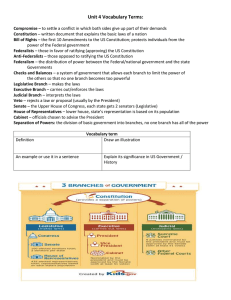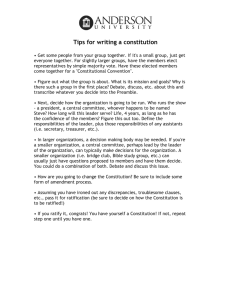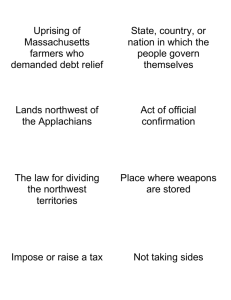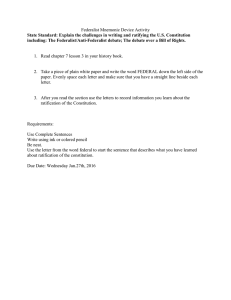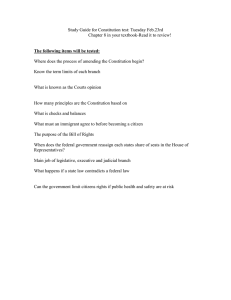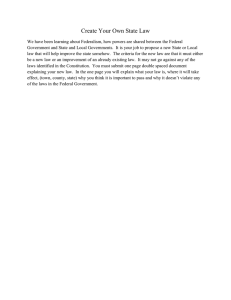CHAPTER 5 VOCABULARY
advertisement
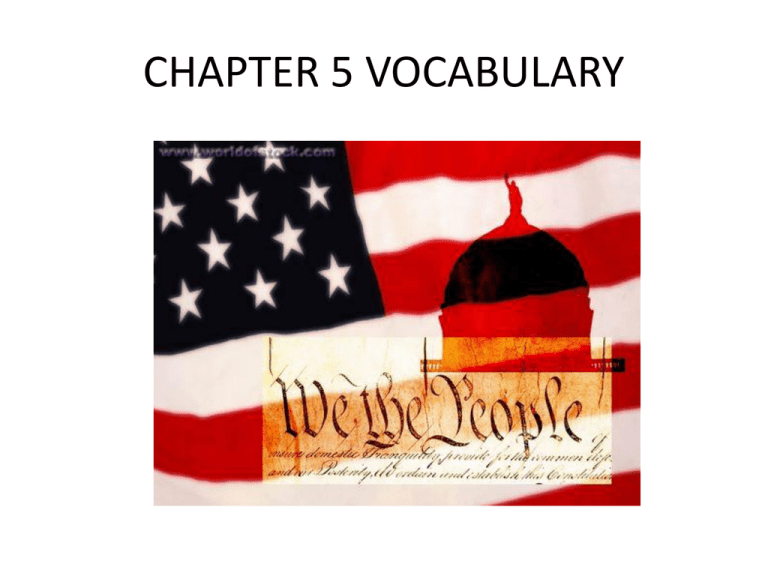
CHAPTER 5 VOCABULARY Constitution: • a set of basic principles and laws that states the powers and duties of the government Suffrage: the right to vote Ratification: an official approval Tariffs: taxes on imports and exports Inflation: Increases prices for goods and services combined with the reduced value of money. Depression: a steep drop in economic activity combined with rising unemployment Checks and balances: a system of established by the Constitution that prevents any branch of government from becoming too powerful Amendments: official change, correction or addition to a law, constitution or a document Federalism: United States system of government in which power is distributed between a central government (Congress) and individual states Legislative branch: the division of the federal government that proposes bills and passes them into laws Executive branch: the division of the federal government that includes the president and the administrative departments; enforces our nation’s laws Judicial branch: the division of the federal government that is made up of the nation’s courts; interprets the laws, punishes criminals, and settles disputes between states

